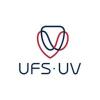Tor: End Term Evaluation Of The Wine Decent Work Project
Job Description
Introduction & Background
Overview of Fairtrade Africa (FTA)
Established in 2005, Fairtrade Africa (FTA) is a member of Fairtrade International and the umbrella network organization representing Fairtrade-certified Producer Organizations in Africa and the Middle East. It has four (4) regional networks - Eastern & Central Africa; Southern Africa; West Africa; and the Middle East & North Africa. Fairtrade Africa currently represents 1,445,265 farmers and workers in 684 Producer Organizations spread across 29 countries in Africa and the Middle East by providing services to them that contribute to the improvement of their livelihoods.
Overview of The DONUTS Programme
Dignified Opportunities Nurtured Through Trade and Sustainability (DONUTS) is a four-year Development program funded by the Ministry for Foreign Affairs of Finland (MFA-Finland) with further support from National Fairtrade Organizations (NFOs) and Commercial partners. The goal of the program is to have Farmers and agricultural workers' rights to sustainable livelihoods realised. The program intends to achieve this goal by enhancing the resilience of communities to risks, strengthening democracy and inclusion of civil society organizations as well as supporting realization of living income and decent work. In addition, DONUTS supports farmers, workers and other stakeholders mitigate climate change and protect nature.
Overview of the Decent Work Project
The Decent Work project aims to address the challenges in the SA wine sector through contributing to the realization of workers' rights to decent work in the South African wine sector. The project attempts to address issues around low wages, discrimination against women, youth and migrants and the low level of unionization among the rightsholders. The expected results include increased understanding of workers on their rights and responsibilities, stronger trade unions, increased dialogue between companies & rightsholders, and increased cooperation with government to address the most salient issues related to labour relations.
The project supports 18 wine farms in the Western Cape Province of South Africa with 2,060 targeted workers as final beneficiaries. The project also promotes gender equality and the empowerment of women workers and vulnerable groups such as differently abled people as crosscutting objectives.
Evaluation Purpose
Fairtrade Africa is recruiting a consultant to conduct an end of project evaluation to:
Assess the project based on the OECD DAC evaluation criteria, DONUTS cross-cutting objectives and to support learning, adaptation & replication by answering the following questions:
Relevance:
- How well did the project's design align with the priorities, needs, and aspirations of the targeted rightsholders?
- Were the selected interventions contextually and culturally appropriate?
- Were risks to human rights considered in selected interventions?
- How effectively was the project integrated with existing local, national or regional, or policies?
- To what extent did the project complement or duplicate other donor-funded initiatives in the same sector?
- What mechanisms were in place to ensure alignment with external actors (government, NGOs, private sector)?
- Was the project adherent to the protection of human rights?
- To what extent has the project achieved its intended objectives and targets?
- What progress has been made towards key project outcomes and indicators?
- What factors facilitated or hindered the achievement of intended results?
- How effectively were project strategies adjusted based on real-time feedback and learning?
- How flexible was the project in adapting to emerging needs and challenges during implementation?
- How efficiently were financial and human resources allocated and utilized?
- Were the project's interventions cost-effective compared to alternative approaches?
- Were there any areas where resources could have been used more effectively?
- How did project management, governance, and decision-making structures contribute to efficiency in implementation?
- How has the project contributed to improving the livelihoods, resilience, and well-being of beneficiaries?
- What behavioral, social, and economic changes have resulted from the interventions?
- Were there unintended positive or negative consequences arising from the project?
- How likely are the project's benefits, skills, and resources to be sustained after funding ends?
- To what extent have local actors (government, CSOs, community leaders) taken ownership of interventions?
- What measures were in place to ensure accountability and transparency in project implementation? Could they be improved? If so, how?
- What strategies were put in place to ensure institutionalization and long-term sustainability?
- What are the key risks or barriers to sustaining project outcomes, and how can they be mitigated?
- Has the project established sustainable mechanisms for inclusion?
- To what extent did the project strengthen gender equality, youth participation, and inclusion of vulnerable persons in the wine farms?
- Did the chosen approaches enhance inclusion of women, youth and vulnerable persons in the project? How well? Could the approaches be improved? How?
- What best practices and lessons can inform future program design and implementation?
- How can collaborative learning approaches be enhanced to support continuous improvement?
- What elements of the project have been most effective and scalable?
Deliverables * Inception Report: This report will outline the evaluation methodology, work plan, and data collection tools.
- Draft Report and data: This report will present the preliminary findings, conclusions, and recommendations of the evaluation together with completed Indicator performance tracking table (IPTT) for project output, outcome and impact indicators. The draft report will be presented to the project stakeholders for feedback.
- Final Report and data: This report will incorporate feedback from project stakeholders and will be the final version of the evaluation report. A summary of the report in MS PowerPoint should also be provided.
- Dissemination Plan: This plan will outline how the evaluation findings will be shared with stakeholders.
- The consultant will select an appropriate sampling method to obtain a representative sample from targeted rightsholders for data collection.
- Desk Review & Comparative Analysis: analysis of project reports, baseline assessments as well as the comparison of the baseline and endline findings to assess change over time.
- Detailed information on the methods to be used will be developed by the consultant during the Inception period.
The expected start date of this consultancy is 15th July 2025, and the consultant is expected to complete the assignment by or before 30th September 2025.
Ethical Considerations * The evaluation will be conducted in an ethical and transparent manner, and in accordance with FTA policies (including Data protection policy, Anti-Sexual Harassment Policy, Child Protection Policy).
- The evaluation team will obtain informed consent from all participants and will ensure the confidentiality of all data collected.
- The evaluation team will adhere to the highest standards of professional conduct.
Fairtrade Africa seeks an experienced, proactive and dedicated consultant to undertake this assignment. We welcome applications from interested people or groups with: * A minimum of 5 years' experience in carrying out evaluations. Evaluations of agriculture development programs in the South African and in wine value chain is an asset.
- An evaluation team will be composed of qualified evaluators with experience on workers' rights and gender equality.
- Demonstrable experience with the OECD DAC approach in qualitative and quantitative research methodology, evaluation design and implementation.
- Strong analytical, communication and reporting skills.
- The consultant MUST be based in South Africa and available to undertake the assignment starting from 15th July 2025.
- Proficiency in English and the local language.
MNCJobs.co.za will not be responsible for any payment made to a third-party. All Terms of Use are applicable.
Job Detail
-
Job IdJD1449513
-
IndustryNot mentioned
-
Total Positions1
-
Job Type:Full Time
-
Salary:Not mentioned
-
Employment StatusPermanent
-
Job LocationSouth Africa, South Africa
-
EducationNot mentioned

